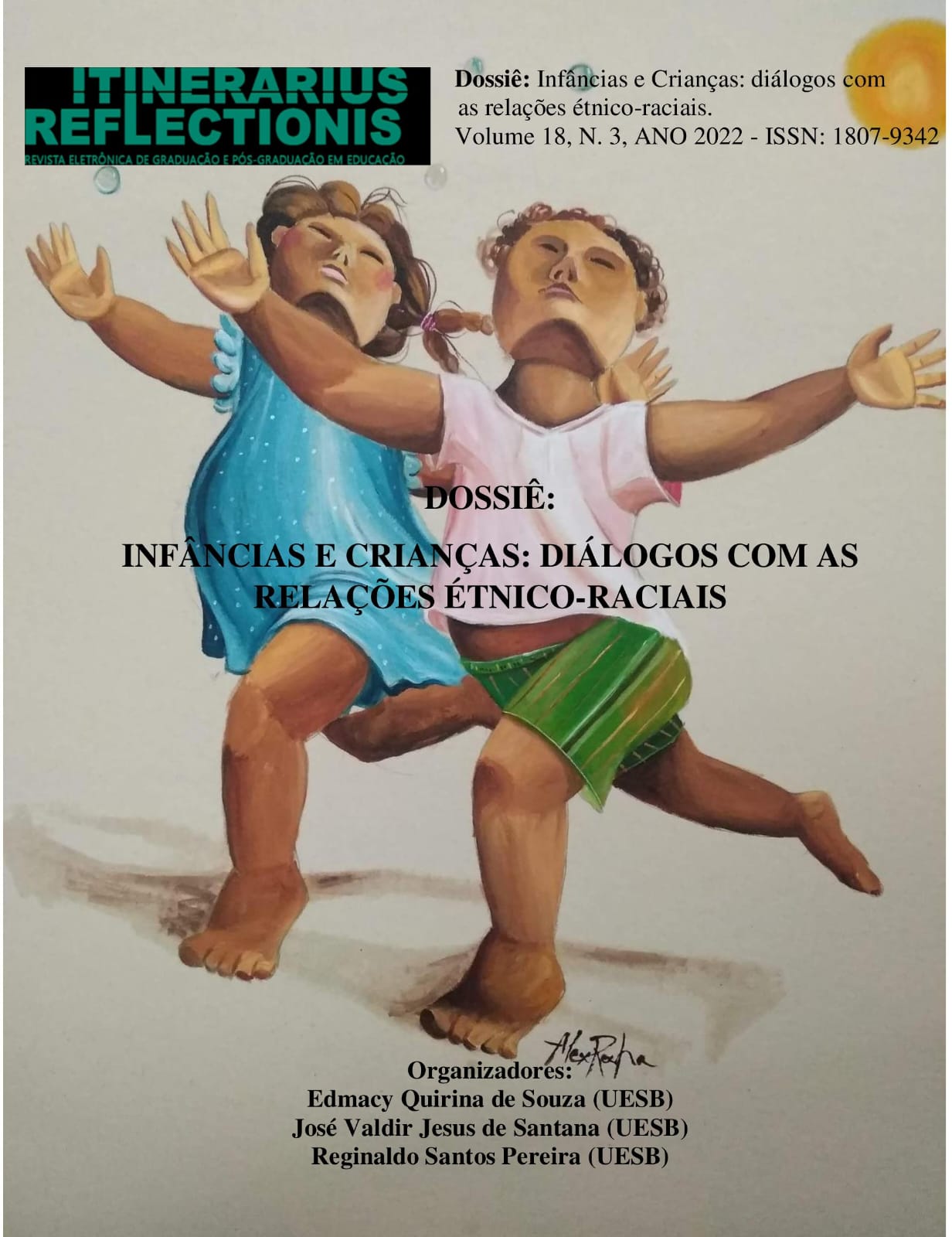The indigenous child in the urban setting
education and identities
DOI:
https://doi.org/10.5216/rir.v18i3.69577Abstract
This work results from a research initiated in October 2018 and concluded in January 2020 during the master’s. It was carried out in the city of Manaus (Amazonas), in the Parque das Tribos and Mauazinho neighborhoods, where one can find indigenous communities, the first being multiethnic and the second being of the Apurinã ethnicity, and specific schools for such communities, the Centros Municipais de Educação Escolar Indígena (CMEEI – City Centers for Indigenous School Education), whose students are: children, teenagers and adults who belong to multiple ethnicities. The main educational characteristic of these schools is the study and knowledge of the indigenous traditions and customs they comprise. The aim of this study was to understand the identity construction of the indigenous children in the school environment. This analysis was based on a threefold approach: family, community, and school, observing their primary and critical importance in defining the identitarian belonging of the indigenous child living in the urban area. The relation between the identities in the urban indigenous school environment was observed and it was found that the identitarian belongings are present in and constantly expressed by these children. Another key point that was studied was the social and economic situation of these families, and what the educational situation of the students who participated in the research was. The study was based on the theoretical principles of Fredrik Barth, to whom international relations are essential for the individual, and identity is not limited; instead, boundaries are crossed, and the identitarian definition is not constrained by geographical outlines. Participant observation made it possible to carry out the research and enter the community and school spaces, watching and recording the phenomena witnessed by us for further analysis and interpretation within a hermeneutical approach. It must be highlighted that the perception of the scholars who participated in the research regarding the Indigenous School Education in the urban setting in the city of Manaus (Amazonas) was also studied, emphasizing the need for critical actions aiming at the ethnical and racial inclusion of the indigenous people living in the urban centers of Brazilian cities.
Downloads
Downloads
Published
How to Cite
Issue
Section
License
Os artigos encaminhados para publição na revista ITINERARIUS REFLECTIONIS deverão ser originais e não publicados ou propostos para tal fim em outra revista. Aceitam-se artigos escritos em Português, Espanhol e Inglês. A revista ITINERARIUS REFLECTIONIS se reserva o direito de efetuar, nos originais, alterações de ordem normativa, ortográfica e gramatical, com vistas a manter o padrão culto da língua, respeitando, porém, o estilo dos autores. As provas finais não serão enviadas aos autores. Texto sobre Copyright do conteúdo da Revista.


